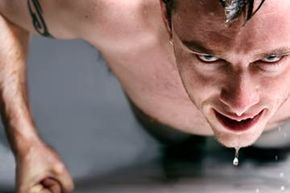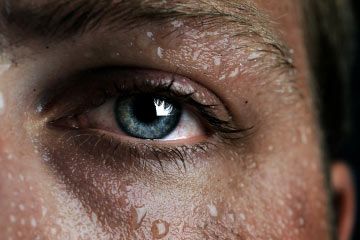Your body is equipped with a very efficient air-conditioning system: 2.6 million sweat glands that cover nearly every inch of your body, and lots of ductwork. You can produce up to 6 pints (3 liters) of sweat an hour, though you probably top out at 2 pints (1 liter) an hour unless you live in a hot environment. This is great if you're overheated, and not so great if you're walking through the parking lot to a job interview.
Exercise and heat can cause you to sweat, but so can fear, excitement and anxiety. And, regardless of other factors, some people just plain sweat more than others. (Those who sweat way more than others may have a condition known as hyperhidrosis, a genetic disorder that causes excessive perspiration.)
Advertisement
But what exactly is sweat? And why does it make us smell different?
If you lick the back of your hand after a run, you'll taste salt. Sodium is one of sweat's main ingredients, along with chloride and potassium. All three are carried to the surface of the skin by water produced by coils within your sweat glands, and the salt stays on you after the liquid evaporates.
This mix of ingredients is what most of your sweat glands produce. We have two types of sweat glands: eccrine sweat glands that cover most of your body and produce a water-heavy mix, and apocrine sweat glands that produce a thicker, plasmalike mix. Apocrine sweat glands are located where there are lots of hair follicles, such as your scalp, in your underarms and around the anus and genital region. Their brew is a little different -- the regular recipe plus fatty acids and protein byproducts like urea and ammonia.
Interestingly, none of the contents of sweat stink -- it's the bacteria on your skin's surface that interacts with sweat produced by the apocrine sweat glands to produce the smell.
Additionally, sweat may have an ingredient that comes in handy in the fight against disease. The British Journal of Medicine reports German researchers discovered within sweat the presence of a natural antibiotic they named dermcidin, which may play a role in killing bacteria and viruses upon the skin's surface [source: Josefson].
What else can sweat do for you? We've got all sorts of articles on the topic on the next page.
Advertisement



